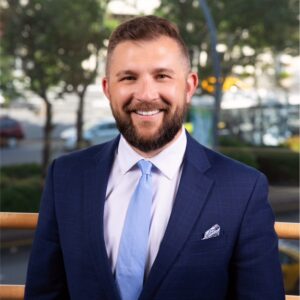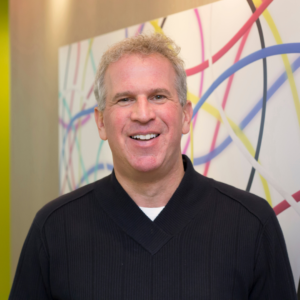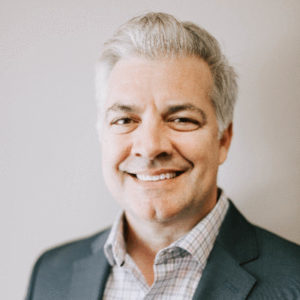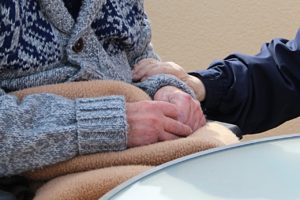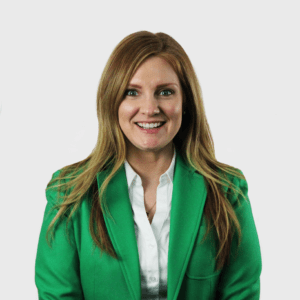Nurturing spirituality in LTC
The Department of Spirituality and Culture of Signature HealthCARE, a post-acute and long-term care nursing home company based in Louisville, Ky., was founded in 2005 on the belief that nurturing the spirit is an integral part of resident and employee care. The department, therefore, was built on the emotional and spiritual healing well of unconditional love for people of all faiths and beliefs, bringing to light the rich cultural traditions of our residents to illuminate the heritage of an older generation and make it visible to the hearts and minds of a “now” generation.
A main component to the department is the interfaith Signature Chaplain Program. Full-time chaplains serve through bold listening, hope and humility, striving to meet residents, employees and family members where they are at the point of their need. Our mission is to bind up the brokenhearted and help heal the sick and aging, frightened and disoriented. We do not “water down” religion but make available a spiritual path specific for individual discovery while respecting the journey of others. At Signature, one can choose to worship or not, but they have the freedom to be.
‘SELLING’ SPIRITUALITY
Skepticism was at an all-time high when Signature President and CEO Joe Steier and I launched the department, both because of the way healthcare “had always been delivered” and the stigma of God in the workplace. Obstacles were many, including in long-term care, where chaplains are typically volunteers. This approach had chaplains coming in to pray and leaving with little involvement or knowledge of the resident’s true needs.
To truly integrate spirituality into the organization required an overhaul in thinking, a paradigm shift in routine behaviors with spirituality in its appropriate silo. We envisioned a spirituality department as a prominent part of the care spectrum and we proposed that prayer and spiritual interventions could work into the protocols of healthcare delivery, and aligned with our clinical and therapy teams, could both restore the body and nourish the soul.
Institutional buy-in was critical, and while we didn’t have overwhelming global support, we went to facility leaders to create a grassroots groundswell. We wanted to help our facilities with all the fears inherent in long-term care: prevalent resident sickness and depression, family complaints, regulatory requirements and restrictions, and employee turnover. The question was, “How could we help the team?”
We knew the only way to expand the program was to provide anecdotal proof of its power and efficacy. So we began to promote the program’s successes through writings of “miracle moments,” large and small, wounds healed in the pains of the heart and on the surface of the skin.
FORGING KEY PARTNERSHIPS
In addition to needing the support of the leaders and staff in our buildings, we also needed buy-in from key departments and company leaders for the spirituality program to expand and thrive.
I realized early on that legal was the shield that would “allow” God in the workplace, ensuring that we were respectful of all faiths and unconditional in our approach. Our legal team, headed by Sandra Adams, helped to edit early documents, protocols and systems. While legal departments are mostly risk averse, Sandra believed that the benefits would outweigh the risks, especially in meeting the suffering, spiritual and healing needs of our people.
Our Human Resources department, led by Tracy Harrison, has proven to be another vital partnership even though the mention of “God” in the workplace might be considered unmentionable in today’s corporate arena. But we formed a strong alliance and stepped into the vulnerable unknowns and nuances that spirituality would bring. We saw how guidance and direction, compassion and love together, could help employees achieve their potential and light their capabilities within. The departments listened to each other-minus our pride and fearfulness-and were able to collaborate for the best person-centered outcomes, empowering them to be their best, to be free, to be true to who they were.
EXPANDING NEEDS
While the chaplain program was originally conceived for the resident, we realized early on that many of our employees were in even greater need of the spiritual services we were providing. Many of those employees were single parents, living paycheck to paycheck and wrestling with infinite issues of their own.
The chaplain program initially was part-time but shortly after its inception, we were able to save a woman from suicide and get her the help she needed within the community. Knowing this, Signature HealthCARE’s CEO Joe Steier and CFO John Harrison provided us with the financial means to begin hiring more part-time chaplains.
Demand for spiritual care grew among employees and residents dealing with a slew of emotional and practical difficulties, as the chaplains became friends, advocates and confidants. Thus, the part-time program model began to evolve into a full-time program, which paved the way for even closer partnerships with our clinical, HR, therapy and Quality of Life teams.
SPIRITUALITY IN HEALTHCARE
As therapists must cajole, sometimes even plead with residents to undergo needed therapy, chaplains were tapped for their ability to provide delicate encouragement. Subsequently, therapy refusals began turning into healings. We were seeing this not only in the physical improvement of our residents, but in the financials as well.
A study at Signature HealthCARE of Erin, Tenn., bore out the results of the chaplain intervention as it relates to the clinical care of residents. After refusing therapy, a resident at the Erin facility was referred to the building’s Chaplain Services program by an occupational therapy assistant. The resident began weekly visits with the facility chaplain, who was able to coax her into therapy. The resident subsequently received a RUG score of RMX instead of SE1, the score the resident would have received had she not undergone therapy. This boosted the reimbursement rate by nearly 70 percent. So, in this instance, the benefit of the chaplain intervention was twofold: The resident received the needed therapy and the facility was able to recoup funds that would have otherwise been left on the table.
Together with Chief Nursing Officer Cleo Boulter; Chief Medical Officer Dennis Stone; and Vice President of Therapy Services Jean Stiles, interdisciplinary clinical and care-planned interventions were devised, along with new systems, protocols, trainings and tools to treat physical ailments, promote health and alleviate depression and anxiety. And central to all of this was prayer, listening and a message of hope.
Overall, spirituality required a revolutionary behavior change from the old way of doing things which came with dogged tenacity to sell the mission and vision that spirituality could unite with its clinical partners as a soulful intervention of healing and I believe the company is better off as a result. Today, we have full-time chaplains in each of our facilities, with 72 buildings in seven states, and growing. In addition to the chaplain program, we have developed a number of other services, including a library of 80 teachings related to spirituality, from conflict resolution to bereavement consolation and understanding grief, as well as an online personal journey that facilitates individual discovery of purpose.
Our companywide prayer chain and Compassion Fund (a fund for employees in need of financial assistance who have endured catastrophic or traumatic events) both continue to grow and thrive, offering hope when hope seems to have dissolved beyond reach.
In recent years, we have seen enhanced clinical wellness, improved stability among our nursing staff and greater retention and empowerment among our employees. And, through our qualitative and anecdotal studies, we have found spirituality to be an integral part of these improvements.
In the end, spirituality is a unique and hopeful journey for not only LTC providers, but the healthcare industry as a whole. It promotes best outcomes, prevention and holistic wellness, along with multidisciplinary collaboration that leads to greater efficiencies.
Indeed, spirituality could be the final element needed in the clinical food chain in order to heal people, reduce costs and save the healthcare system from eventual insolvency. Prevention and wellness are key components to the overall strategy of CMS, and we think we have just the right medicine.
Dianne Timmering is Vice President of Spirituality and Culture for Signature HealthCARE, a post-acute and long-term care nursing home company based in Louisville, Ky. For more information, call (561) 301-7401 or email
dtimmering@signaturehealthcarellc.com. Long-Term Living 2011 October;60(10):54-57
I Advance Senior Care is the industry-leading source for practical, in-depth, business-building, and resident care information for owners, executives, administrators, and directors of nursing at assisted living communities, skilled nursing facilities, post-acute facilities, and continuing care retirement communities. The I Advance Senior Care editorial team and industry experts provide market analysis, strategic direction, policy commentary, clinical best-practices, business management, and technology breakthroughs.
I Advance Senior Care is part of the Institute for the Advancement of Senior Care and published by Plain-English Health Care.
Related Articles
Topics: Articles




